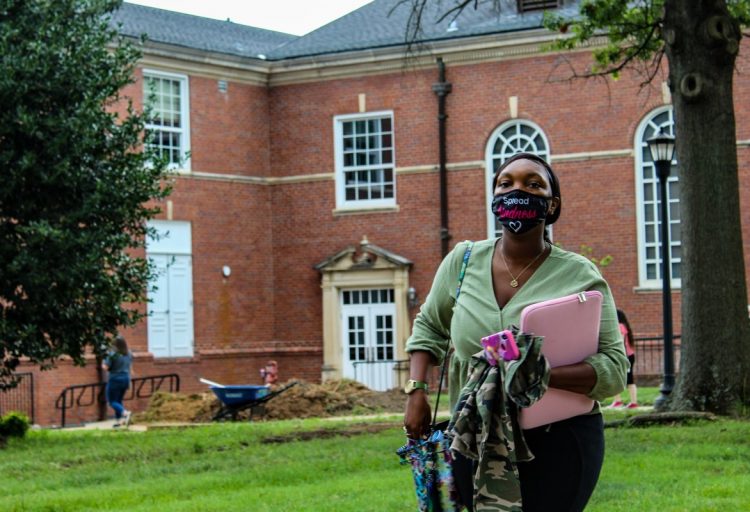–ccoppedge@my.apsu.edu
Situated in a military town, APSU has a large contingent of student veterans, and thus has several programs designed to help them, particularly Soldiers and Families Embraced.
SAFE is a program started by APSU’s Wesley Foundation. “We started working with students connected to the military in January of 2010,” said Reverend Jodi McCullah, director of both SAFE and the Wesley Foundation.
McCullah believes the major goals of the SAFE program are threefold. First, it helps educate the community about the issues facing soldiers and veterans as well as their families. Second, it creates training opportunities for counselors and social workers who want to work with military and their families. Finally, it provides counseling and support services to military and their families.
McCullah said the initial work on the project began when three students she knew came to her because they were struggling to cope and stay in school. They had family members or close friends that were in combat in Iraq, and they knew from contact the 101st Air Assault soldiers from Fort Campbell were suffering a lot of casualties.
“We tried to help these students find counseling and began to see that, while students could seek counseling at the APSU counseling center, their families were also struggling and could not find enough counselors in the area who understood the issue,” said McCullah. “We started, through connections with the Student Veterans Organization on campus, and Don McCasland, SFC Ret., who is now a graduate social work student at APSU, to listen to the veterans we knew in order to figure out what other help they needed and what services were available for them in the area.”
McCullah said APSU is one of the universities in the country which is doing the most for its veterans with programs like SAFE, and they’re always trying to find more effective ways to help. “While obviously we aren’t solving all the problems of our veterans and there are always more services needed, this school likely does more than about any other,” McCullah said.
The biggest challenge for student veterans, McCullah said, is integration. “It’s like spending a year with yours and your buddies’ lives on the line every day, then coming back to get a job selling televisions every day,” McCullah said.
She also said this is true for the families as well, since when a soldier is deployed the family is stressed not only because of the danger, but because they’re missing time with one another.
“Then the soldiers return and everyone has to try and get reacquainted, try to find a new routine with a parent or a spouse back in the home after a long absence,” McCullah said. “They don’t get to just concentrate on getting reacquainted though because the soldier more often than not has to go for training or is preparing for the next deployment and does not have the time needed to process through all the experiences and likely the losses and traumas of the past year.”
Finally, McCullah encourages people who have never served to try and understand why people join the military. “Sometimes people enlist or stay in the military because of the economy being so tight right now,” McCullah said. “Others simply feel like this is one way they can do something important and they want to serve and have a mission that is important.” TAS


